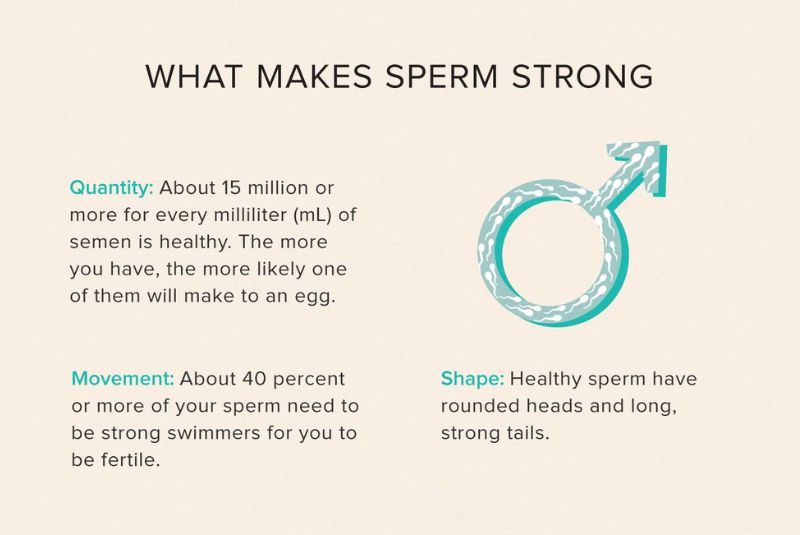Within the intricate dance of human reproduction, sperm take center stage as the carriers of life and legacy. The health and quality of sperm are paramount not only for the creation of life but also for the well-being of future generations. This article delves into the profound significance of sperm health and quality, exploring the factors that influence them, the implications of their well-being, and steps individuals can take to ensure optimal reproductive success.
The Essence of Sperm Health and Quality
a. Sperm Morphology:
The shape and structure of sperm are critical for successful fertilization. Abnormalities in sperm morphology can hinder their ability to penetrate the egg and form a zygote.
b. Sperm Motility:
The agility and speed of sperm—referred to as motility—are vital for their journey through the female reproductive tract to reach the egg. Reduced motility can impede the fertilization process.
c. Sperm Count:
The concentration of sperm in semen, known as sperm count, is a crucial factor in fertility. A lower sperm count may reduce the chances of sperm successfully reaching and fertilizing the egg.
Factors Influencing Sperm Health
a. Lifestyle Choices:
Unhealthy lifestyle habits, such as smoking, excessive alcohol consumption, and poor diet, can negatively impact sperm health by affecting sperm count, motility, and morphology.
b. Environmental Exposures:
Exposure to pollutants, endocrine-disrupting chemicals, and radiation can contribute to DNA damage and oxidative stress, which may compromise sperm health.
c. Age:
Advanced paternal age has been associated with changes in sperm health, including decreased sperm count, motility, and DNA integrity.
d. Hormonal Imbalances:
Hormonal disruptions, such as low testosterone levels, can affect sperm production and quality.
e. Medical Conditions:
Certain medical conditions, like diabetes and obesity, can impact sperm health and fertility.
Implications of Sperm Health and Quality
a. Fertility Challenges:
Poor sperm health can be a significant factor in male infertility, hindering the ability to conceive naturally.
b. Pregnancy Outcomes:
The health of sperm can influence the success of fertilization and impact the health of the developing embryo, potentially affecting pregnancy outcomes and the health of offspring.
c. Genetic Integrity:
Sperm quality plays a crucial role in transmitting genetic information to the next generation. Healthy sperm are essential for reducing the risk of genetic abnormalities and birth defects.
Cultivating Optimal Sperm Health
a. Healthy Lifestyle:
Adopting a balanced diet rich in antioxidants, engaging in regular physical activity, and managing stress contribute to overall well-being and support sperm health.
b. Hydration:
Staying adequately hydrated is important for maintaining optimal semen volume and sperm concentration.
c. Avoiding Harmful Exposures:
Minimizing exposure to environmental toxins, pollutants, and harmful chemicals can protect sperm health.
d. Regular Check-ups:
Routine medical check-ups and semen analyses can help monitor sperm health and detect any abnormalities early.
e. Stress Management:
Chronic stress can impact hormonal balance and sperm production. Practicing relaxation techniques, such as meditation and deep breathing, can mitigate its effects.
Sperm health and quality are the cornerstones of male reproductive success and the foundation for future generations. Recognizing the multifaceted influences on sperm health and adopting a proactive approach to nurturing it can empower individuals to take charge of their reproductive well-being. By making informed lifestyle choices, minimizing harmful exposures, and seeking regular medical guidance, men can optimize their chances of achieving fertility and contributing to the creation of healthy and vibrant lives. With a focus on sperm health, individuals embark on a journey that echoes through generations, ensuring the continuity of life’s magnificent tapestry.

